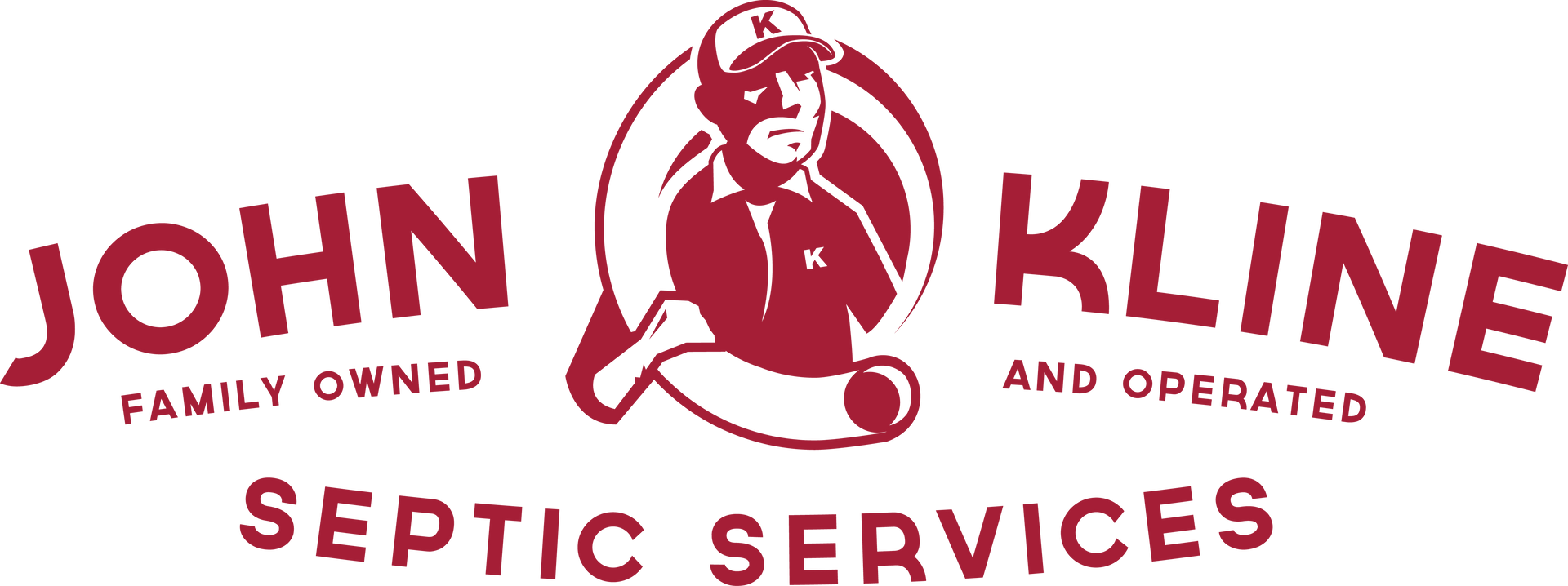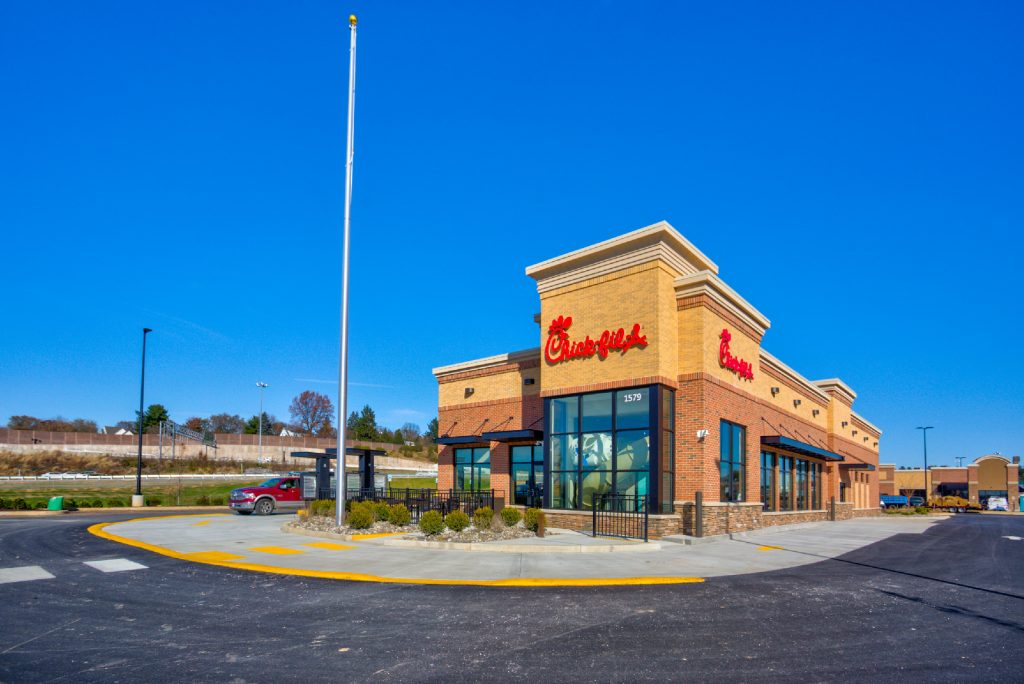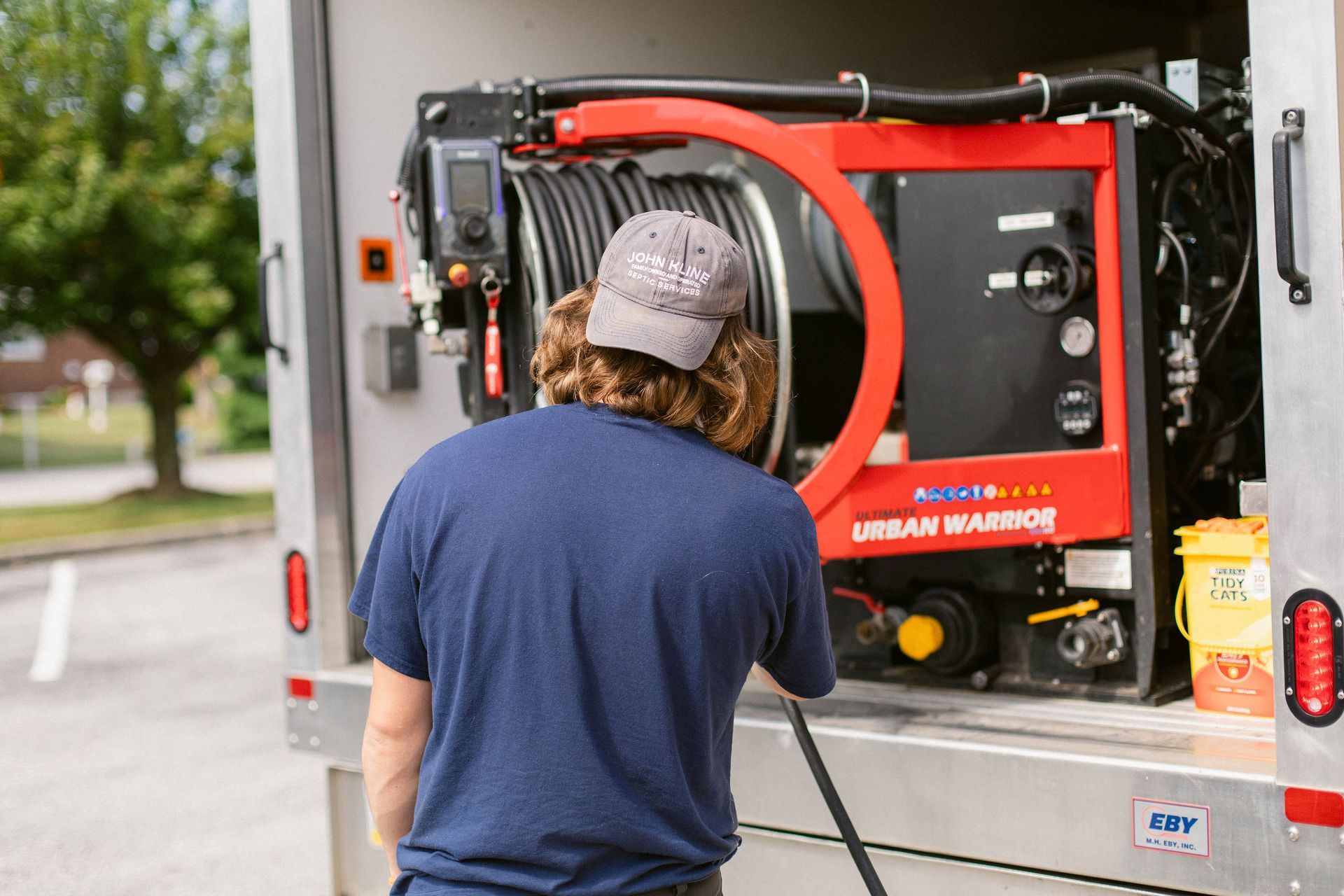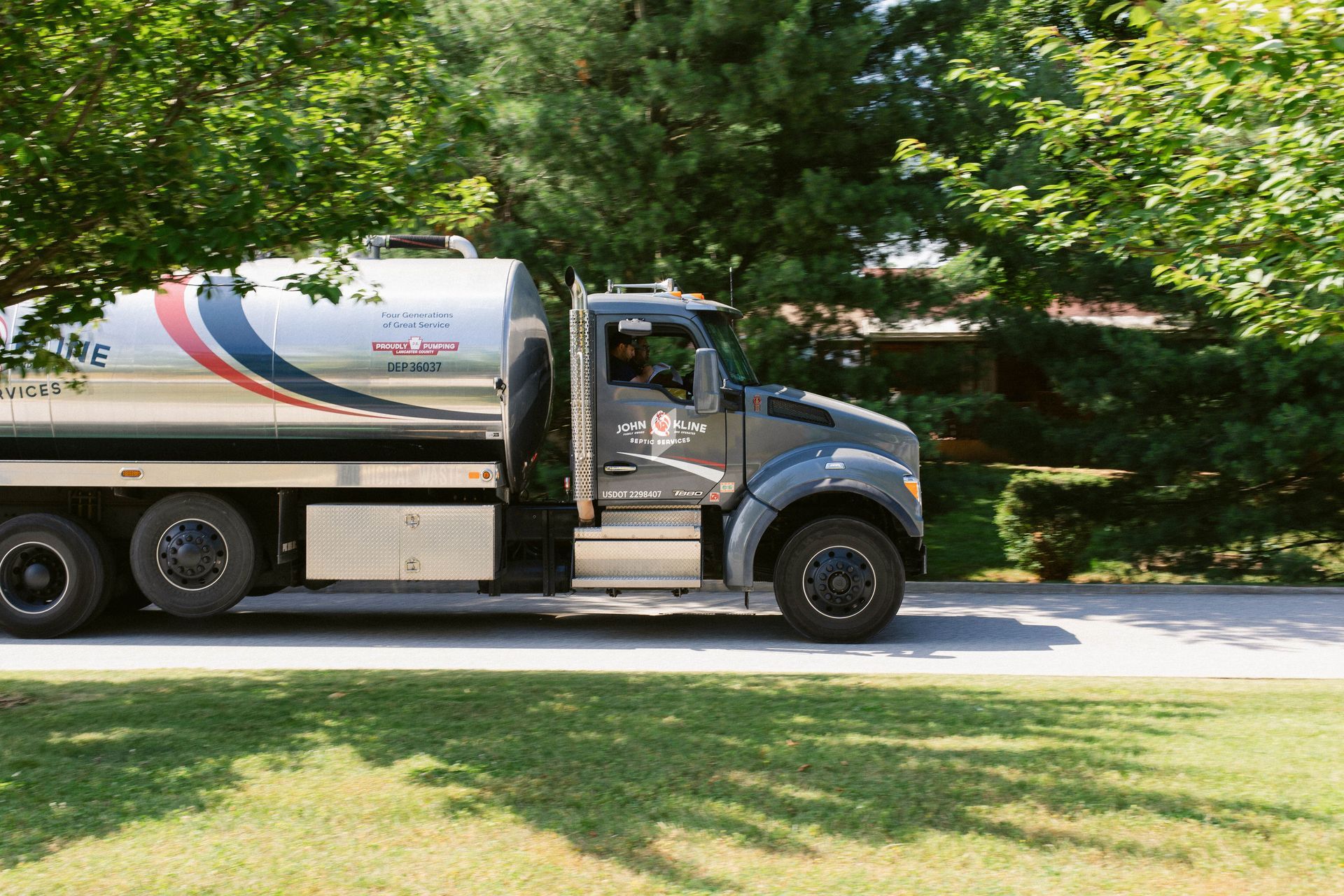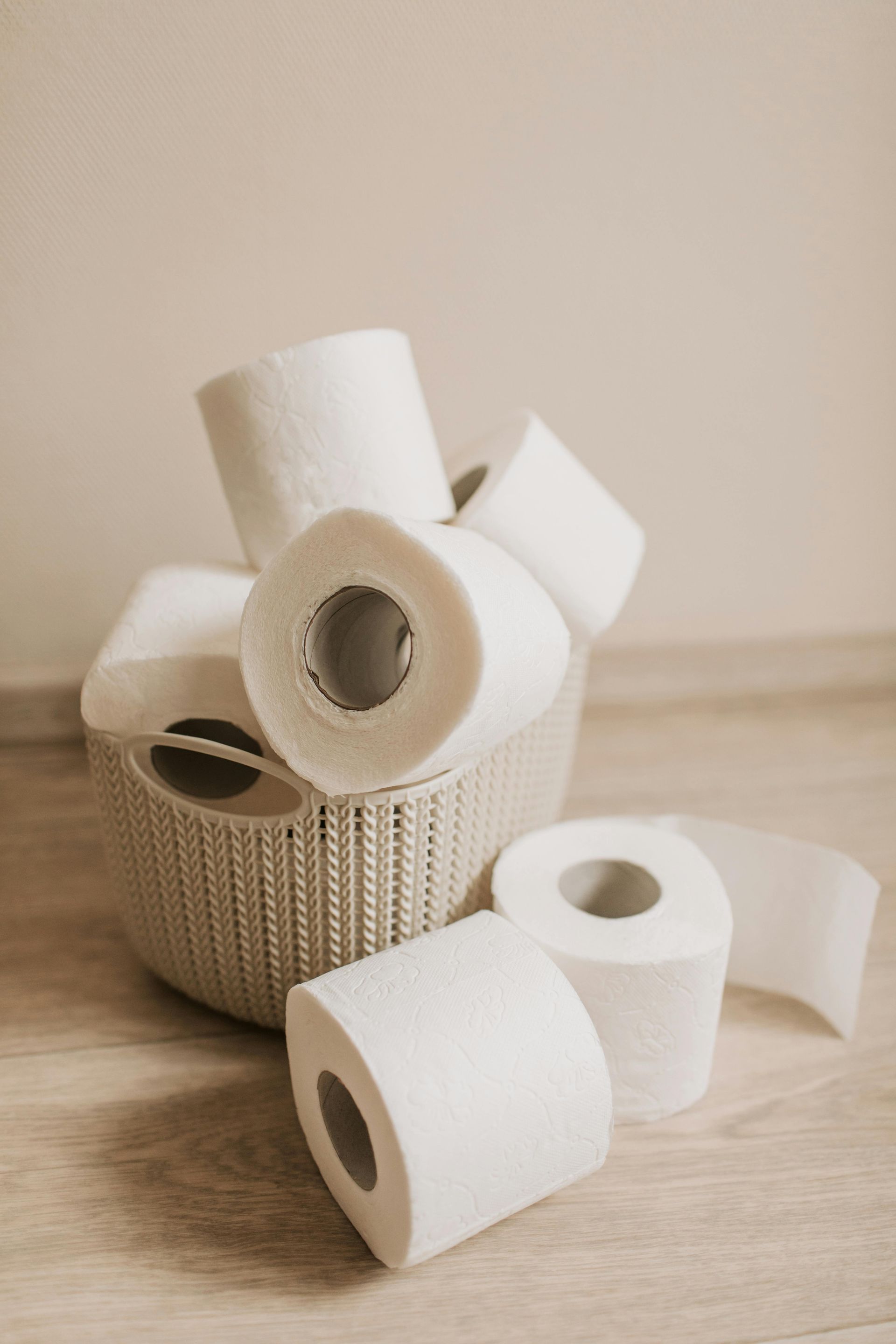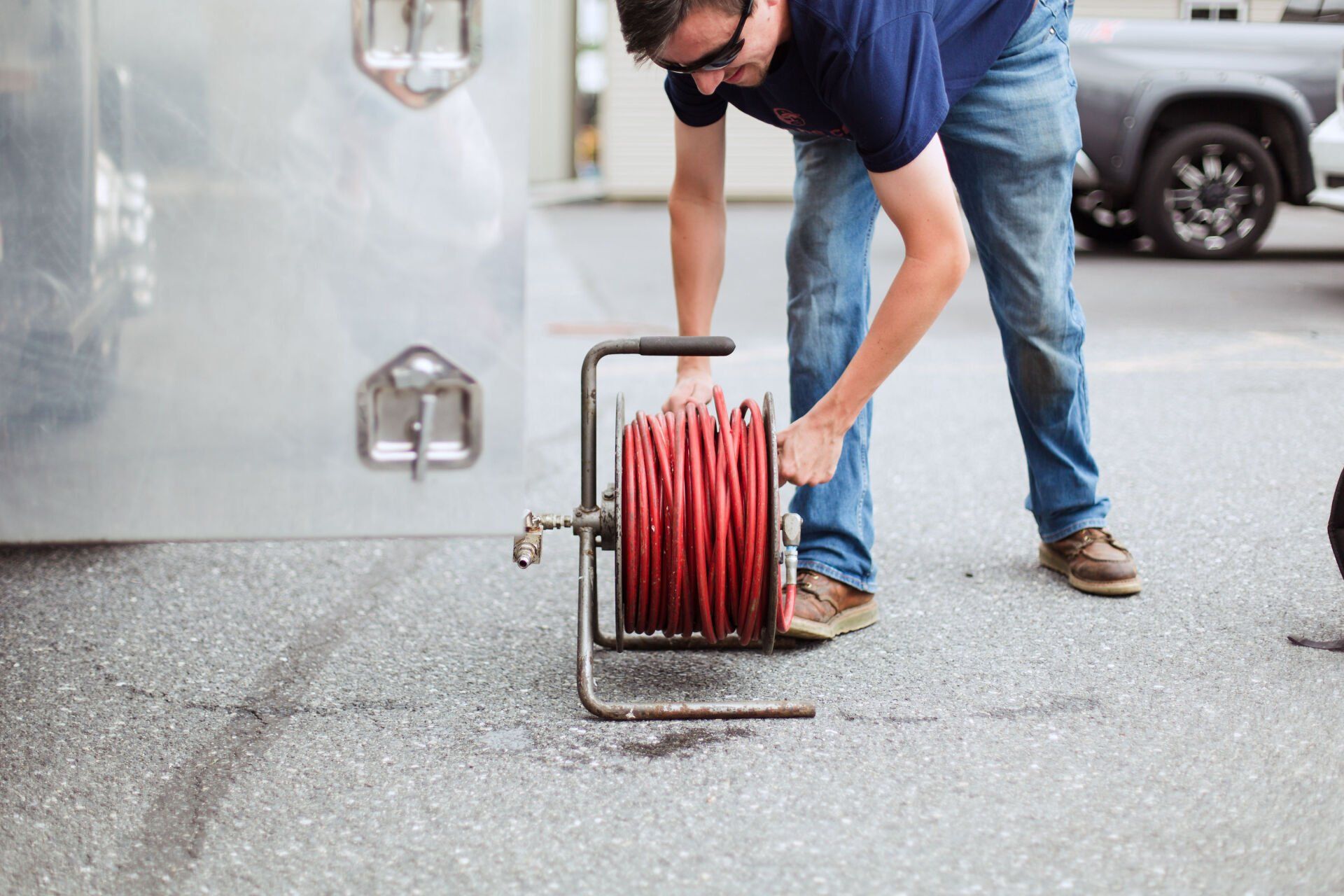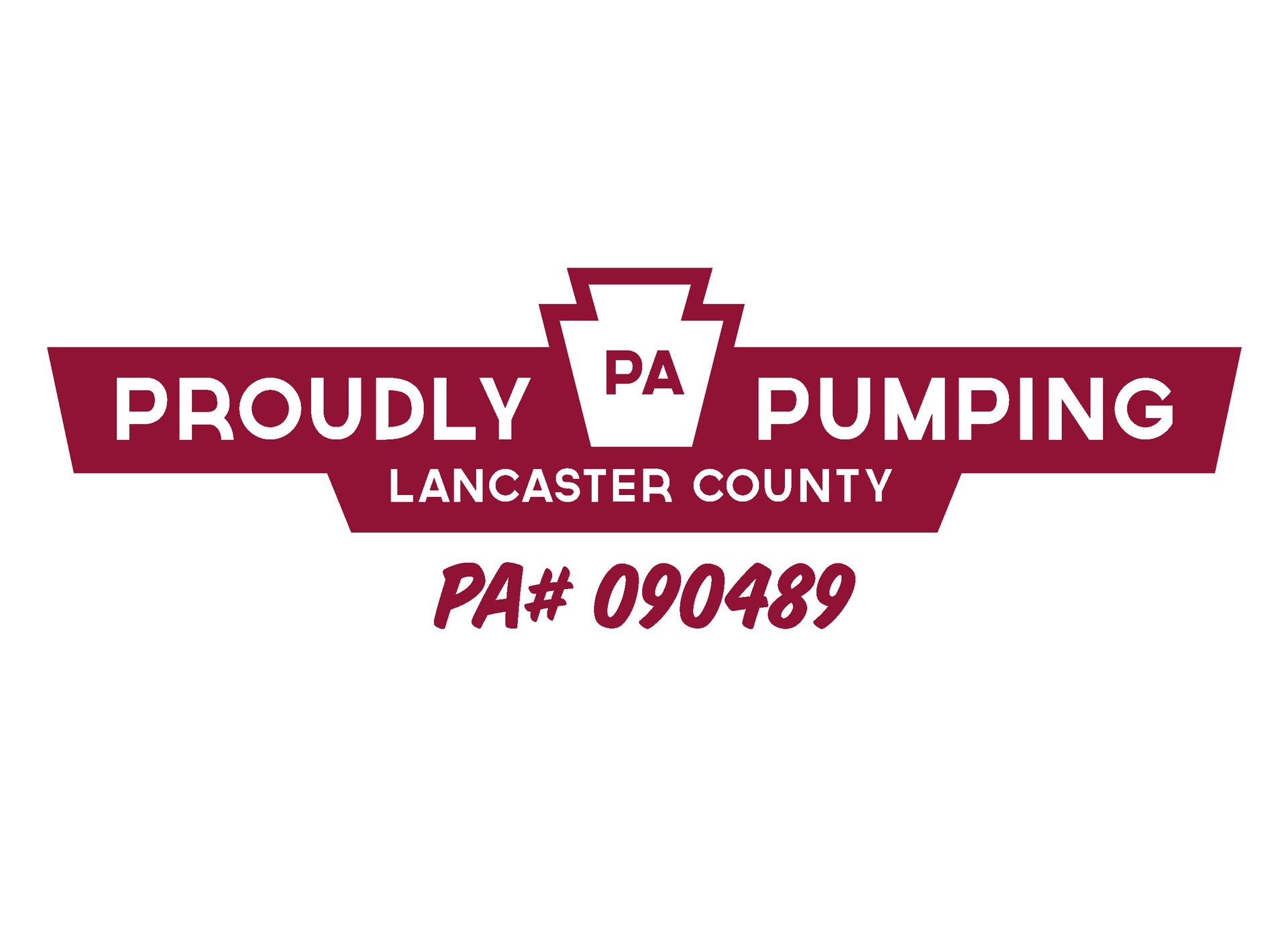Grinder Pumps 101
Everything You Need to Know About Grinder Pumps: How They Work, When to Use Them, and Why John Kline Septic Services is Your Best Choice
If you're dealing with plumbing that’s lower than the main sewer line or lacking the slope needed for proper drainage, a grinder pump could be the perfect solution for your home or business. Grinder pumps are high-pressure, low-volume systems designed to grind and move sewage from your property to the municipal sewer system. But how do they work, and why are they essential for certain situations? Keep reading to learn more or
contact us today to schedule service!
How Grinder Pumps Work:
- A grinder pump is a waste management device that grinds solid waste into a fine slurry and then pumps it to the municipal sewer system.
- Typically installed in basements or crawl spaces, these pumps are used in homes or businesses where the plumbing is at a lower grade than the main sewer line. Without enough slope for gravity to naturally move waste, the grinder pump takes over.
- Here’s how it works: household waste from toilets, sinks, and washing machines flows into the grinder pump’s holding tank. Once the waste level reaches a specific point, the pump automatically turns on. Blades within the pump grind the solid waste into a liquid form, which is then pumped through small pipes to the public sewer system. After the waste is successfully moved, the pump shuts off and returns to its original position, ready for the next cycle.
Impact on Your Septic System
While grinder pumps are excellent for moving sewage in specific situations, they aren’t typically used in septic systems. The finely ground slurry created by the grinder pump doesn’t separate well from liquids, which is crucial in septic systems that rely on natural separation to treat wastewater. For septic systems, a sewage or effluent pump is usually more appropriate. Grinder pumps are more commonly used in municipal sewer systems or commercial applications like restaurants and bars.
One key thing to remember is that grinder pump systems are sensitive to certain materials. Items like sanitary napkins, diapers, grease, kitty litter, paint, motor oil, and even so-called "flushable" wipes should not be disposed of through your plumbing, as they can cause clogs and lead to pump failure. Regular maintenance is important to prevent grease buildup, which can affect the efficiency of your grinder pump.
When to Use a Grinder Pump
A grinder pump should be used when gravity can’t naturally direct wastewater to the municipal sewer system, such as when your property is lower than the main sewer line or when the slope isn’t sufficient to allow proper flow. Homes with plumbing systems located below the sewer line or those adding plumbing fixtures like toilets, sinks, or laundry rooms in basements often require a grinder pump.
Grinder pumps are also commonly used in commercial settings where a high volume of waste must be managed efficiently. For example,
restaurants and bars
need heavy-duty systems capable of processing more waste than a typical residential setup.
Impact on Your Septic System
While grinder pumps are excellent for moving sewage in specific situations, they aren’t typically used in septic systems. The finely ground slurry created by the grinder pump doesn’t separate well from liquids, which is crucial in septic systems that rely on natural separation to treat wastewater. For septic systems, a sewage or effluent pump is usually more appropriate. Grinder pumps are more commonly used in municipal sewer systems or commercial applications like restaurants and bars.
One key thing to remember is that grinder pump systems are sensitive to certain materials. Items like sanitary napkins, diapers, grease, kitty litter, paint, motor oil, and even so-called "flushable" wipes should not be disposed of through your plumbing, as they can cause clogs and lead to pump failure. Regular maintenance is important to prevent grease buildup, which can affect the efficiency of your grinder pump.
When to Use a Grinder Pump
A grinder pump should be used when gravity can’t naturally direct wastewater to the municipal sewer system, such as when your property is lower than the main sewer line or when the slope isn’t sufficient to allow proper flow. Homes with plumbing systems located below the sewer line or those adding plumbing fixtures like toilets, sinks, or laundry rooms in basements often require a grinder pump.
Grinder pumps are also commonly used in commercial settings where a high volume of waste must be managed efficiently. For example,
restaurants and bars
need heavy-duty systems capable of processing more waste than a typical residential setup.
Why Call John Kline Septic for Your Sewage Pump Repairs or Replacements?
- At John Kline Septic Services, we understand how vital a properly functioning grinder pump is for homes and businesses relying on it to move waste efficiently. Whether you're experiencing issues with your current system or need a new grinder pump installation, we’ve got you covered. Our expert technicians have extensive experience in repairing, maintaining, and replacing grinder pumps, ensuring your system operates smoothly.
- We offer competitive pricing, same-day emergency service, and high-quality customer care. As a family-owned and locally-operated company, we take pride in serving the Lancaster County area with reliable, trustworthy service.
- Plus, we don't just handle grinder pumps—John Kline Septic Services specializes in sewage pumps and effluent pumps as well, ensuring you have the right system for your needs.
If you need help with your grinder pump or are unsure which type of pump is best for your property, contact us today. We'll assess your situation and provide expert advice, keeping your system running efficiently and preventing costly backups or failures. We're happy to offer pump repairs throughout Central PA and the surrounding areas.
LEARN MORE ABOUT...
- High Pressure Jetting to Clear and Unclog Sewer Lines
- Sewage Pumps 101
- Removal of Roots in the Sewer Line
- Sewer Line Replacement and Repair
- Sewer Pump Replacement
- Video Pipe Inspection of Sewer Lines
- Video Pipe Inspection of Grease Trap Lines
- Excavation Services to Repair or Replace Sewer Lines
